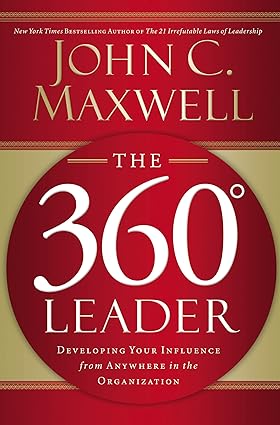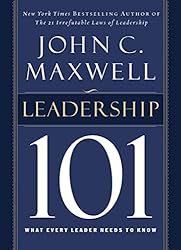Henry Brooks Adams (February 16, 1838 – March 27, 1918) was an American historian and a member of the Adams political family, descended from two U.S. presidents. As a young Harvard graduate, he served as secretary to his father, Charles Francis Adams, Abraham Lincoln’s ambassador to the United Kingdom. The posting influenced the younger man through the experience of wartime diplomacy, and absorption in English culture, especially the works of John Stuart Mill. After the American Civil War, he became a political journalist who entertained America’s foremost intellectuals at his homes in Washington and Boston.
During his lifetime, he was best known for The History of the United States of America 1801–1817, a nine-volume work, praised for its literary style, command of the documentary evidence, and deep (family) knowledge of the period and its major figures. His posthumously published memoir, The Education of Henry Adams, won the Pulitzer Prize and went on to be named by the Modern Library as the best English-language nonfiction book of the 20th century.[1]
The following are some of the best works of Henry Adams:
A Balanced Government
AMIDST all their exultations, Americans and Frenchmen should remember that the perfectibility of man is only human and terrestrial perfectibility. Cold will still freeze, and fire will never cease to burn; disease and vice will continue to disorder, and death to terrify mankind. Emulation next to self-preservation will forever be the great spring of human actions, and the balance of a well-ordered government will alone be able to prevent that emulation from degenerating into dangerous ambition, irregular rivalries, destructive factions, wasting seditions, and bloody, civil wars.
The great question will forever remain, who shall work? Our species cannot all be idle, Leisure for study must ever be the portion of a few. The number employed in government must forever be very small. Food, raiment, and habitations, the indispensable wants of all, are not to be obtained without the continual toil of ninety-nine in a hundred of mankind. As rest is rapture to the weary man, those who labor little will always be envied by those who labor much, though the latter in reality be probably the most enviable. With all the encouragements, public and private, which can ever be given to general education, and it is scarcely possible they should be too many or too great, the laboring part of the people can never be learned.
The controversy between the rich and the poor, the laborious and the idle, the learned and the ignorant, distinctions as old as the creation, and as extensive as the globe, distinctions which no art or policy, no degree of virtue or philosophy can ever wholly destroy, will continue, and rivalries will spring out of them. These parties will be represented in the legislature, and must be balanced, or one will oppress the other. There will never probably be found any other mode of establishing such an equilibrium, than by constituting the representation of each an independent branch of the legislature, and an independent executive authority, such as that in our government, to be a third branch and a mediator or an arbitrator between them. Property must be secured, or liberty cannot exist. But if ‘unlimited or unbalanced power of disposing property, be put into the hands of those who have no property, France will find, as we have found, the lamb committed to the custody of the wolf. In such a case, all the pathetic exhortations and addresses of the national assembly to the people, to respect property, will be regarded no more than the warbles of the songsters of the forest. The great art of law-giving consists in balancing the poor against the rich in the legislature, and in constituting the legislative a perfect balance against the executive power, at the same time that no individual or party can become its rival. The essence of a free government consists in an effectual control of rivalries. The executive and the legislative powers are natural rivals; and if each has not an effectual control over the other, the weaker will ever be the lamb in the paws of the wolf. The nation which will not adopt an equilibrium of power must adopt a despotism. There is no other alternative. Rivalries must be controlled, or they will throw all things into confusion; and there is nothing but despotism or a balance of power which can control them. Even in the simple monarchies, the nobility and the judicatures constitute a balance, though a very imperfect one, against the royalties.
Let us conclude with one reflection more which shall barely be hinted at, as delicacy, if not prudence, may require, in this place, some degree of reserve. Is there a possibility that the government of nations may fall into the hands of men who teach the most disconsolate of all creeds, that men are but fireflies, and that this all is without a father? Is this the way to make man, as man, an object of respect? Or is it to make murder itself as indifferent as shooting a plover, and the extermination of the Rohilla nation as innocent as the swallowing of mites on a morsel of cheese? If such a case should happen, would not one of these, the most credulous of all believers, have reason to pray to his eternal nature or his almighty chance (the more absurdity there is in this address the more in character) give us again the gods of the Greeks; give us again the more intelligible as well as more comfortable systems of Athanasius and Calvin; nay, give us again our popes and hierarchies, Benedictines and Jesuits, with all their superstition and fanaticism, impostures and tyranny. A certain duchess, of venerable years and masculine understanding, said of some of the philosophers of the eighteenth century, admirably well, -“On ne croit pas dans le Christianisme, mais on croit toutes les sottises possibles.”
The End
A Character of Franklin
FRANKLIN had a great genius, original, sagacious, and inventive, capable of discoveries in science no less than of improvements in the fine arts and the mechanic arts. He had a vast imagination, equal to the comprehension of the greatest objects, and capable of a steady and cool comprehension of them. He had wit at will. He had humor that, when he pleased, was delicate and delightful. He had a satire that was good-natured or caustic, Horace or Juvenal, Swift or Rabelais, at his pleasure. He had talents for irony, allegory, and fable, that he could adapt with great skill to the promotion of moral and political truth. He was master of that infantine simplicity which the French call naivet, which never fails to charm, in Ph’drus and La Fontaine, from the cradle to the grave. Had he been blessed with the same advantages of scholastic education in his early youth, and pursued a course of studies as unembarrassed with occupations of public and private life, as Sir Isaac Newton, he might have emulated the first philosopher. Although I am not ignorant that most of his positions and hypotheses have been controverted, I cannot but think he has added much to the mass of natural knowledge, and contributed largely to the progress of the human mind, both by his own writings and by the controversies and experiments he has excited in all parts of Europe. He had abilities for investigating statistical questions, and in some parts of his life has written pamphlets and essays upon public topics with great ingenuity and success; but after my acquaintance with him, which commenced in Congress in 1775, his excellence as a legislator, a politician, or a negotiator most certainly never appeared. No sentiment more weak and superficial was ever avowed by the most absurd philosopher than some of his, particularly one that he procured to be inserted in the first constitution of Pennsylvania, and for which he had such a fondness as to insert it in his will. I call it weak, for so it must have been, or hypocritical; unless he meant by one satiric touch to ridicule his own republic, or throw it into everlasting contempt.
I must acknowledge, after all, that nothing in life has mortified or grieved me more than the necessity which compelled me to oppose him so often as I have. He was a man with whom I always wished to live in friendship, and for that purpose omitted no demonstration of respect, esteem, and veneration in my power, until I had unequivocal proofs of his hatred, for no other reason under the sun, but because I gave my judgment in opposition to his, in many points which materially affected the interests of our country, and in many more which essentially concerned our happiness, safety, and well-being. I could not and would not sacrifice the clearest dictates of my understanding and the purest principles of morals and policy in compliance to Dr. Franklin.
The End
| Download Link: | Read here: |
CHARACTER ENTRIES IN HIS DIARY |
CHARACTER ENTRIES IN HIS DIARY |
Selections from Adams Correspondence |
Selections from Adams Correspondence |
The Education of Henry Adams |



















